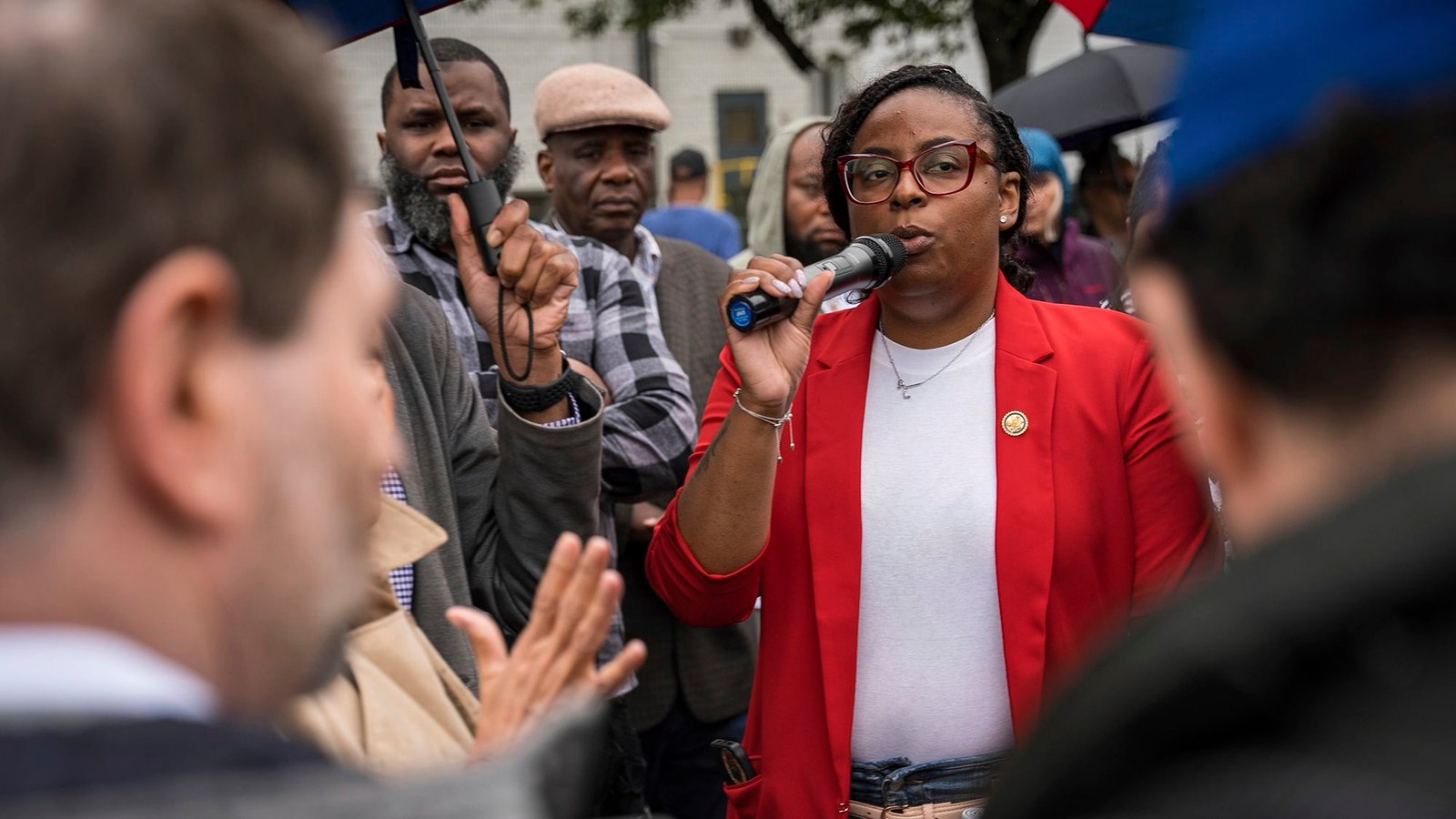On May 19, 2025, the U.S. Department of Justice charged LaMonica McIver, a Representative from New Jersey who is part of the Democratic Party, with assaulting and obstructing federal law enforcement agents concerning a May 9 incident at Delaney Hall, an Immigration and Customs Enforcement (ICE)-detention facility in Newark, New Jersey. The charges have triggered a political controversy about possible limits on congressional oversight, the politicization of law enforcement, and the implications for the enforcement of immigration policy more generally.
History
In January 2025, Delaney Hall, operated by private prison firm GEO Group, reopened under a billion-dollar, 15-year federal contract. It was criticized by local officials, including Newark Mayor Ras Baraka, regarding code violations and lack of permits. Baraka, who is also a Democratic primary challenger to Gov. Phil Murphy, has been vocal about his criticism of the operation of the facility.
On May 9, McIver was joined by Reps. Bonnie Watson Coleman and Robert Menendez Jr. and then accompanied Mayor Baraka on an oversight visit to Delaney Hall. The legislators were allowed in, while Baraka was initially allowed in, but later asked to leave the building. Once he left, he joined the demonstrators outside. Shortly afterwards, he was arrested by federal agents, resulting in a scuffle involving protestors, ICE agents, and the lawmakers.
The Legal Framework
Acting U.S. Attorney Alina Habba revealed that Rep. McIver was charged with assaulting, impeding, and interfering with federal officers under Title 18, U.S. Code, section 111(a)(1). The statute criminalizes forcibly assaulting, resisting, opposing, impeding, intimidating, or interfering with federal officers while they are engaged in the performance of their official duties, especially if there is physical contact.
According to Habba, attempts were made to resolve the circumstances without a criminal charge, although the Congressman declined. Habba reiterated that “nobody gets above the law,” reiterating the DOJ’s objective to protect employees of federal law enforcement.
The action raises serious concerns regarding executive overreach, the politicization of federal law enforcement, and the separation of powers. Prosecuting a sitting congressman for conducting an oversight visit is novel and could set a disturbing precedent regarding what defines executive overreach.
Legal scholars point to the Constitution’s Speech or Debate Clause, granting lawmakers immunity for conduct performed in the course of their official duties. The courts have construed such protection to cover a broad spectrum of activities in furtherance of the legislative process, such as oversight visits, and they accorded wide discretion to the courts. The DOJ’s decision to pursue the case without discussing it with its Public Integrity Section, which traditionally reviews cases and matters relating to members of Congress, casts deep skepticism about the motivations of the prosecution.
This situation also brings to light the increased tensions surrounding the enforcement of immigration and the new role of private detention centers in this area. The reopening of Delaney Hall was opposed by the local community, challenged legally, and protested publicly. The actions of McIver and Baraka clearly illustrate how federal immigration policies can negate local expectations.
This act mirrors past instances of conflict between federal authorities and local governments over immigration enforcement. For instance, most sanctuary cities had resisted the Trump administration’s move to sue them for refusing to collaborate with ICE. Nevertheless, the criminal charging of a federal legislator for activities undertaken while on an oversight visit constitutes an unprecedented escalation.
Conclusion
The DOJ’s indictment of Rep. LaMonica McIver represents an important moment in the balance between legislative oversight and executive enforcement. As the case develops, it will explore the limits of constitutional protections for lawmakers and the scope of federal authority. The case will have lasting implications for congressional oversight, the continuing politicization of law enforcement, and the overall debate on immigration policy across the United States.
Keep reading questiqa.us







Average Rating